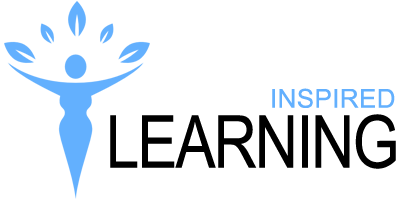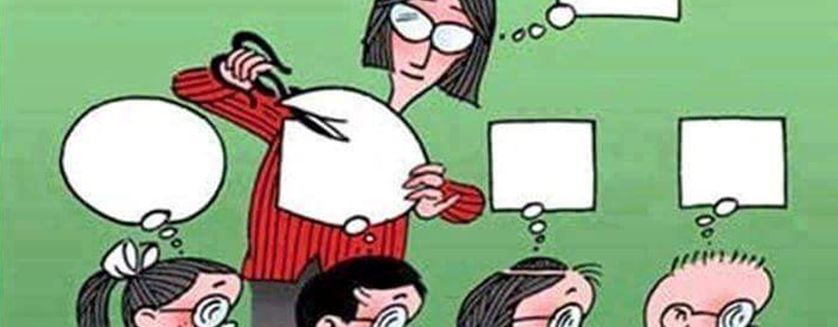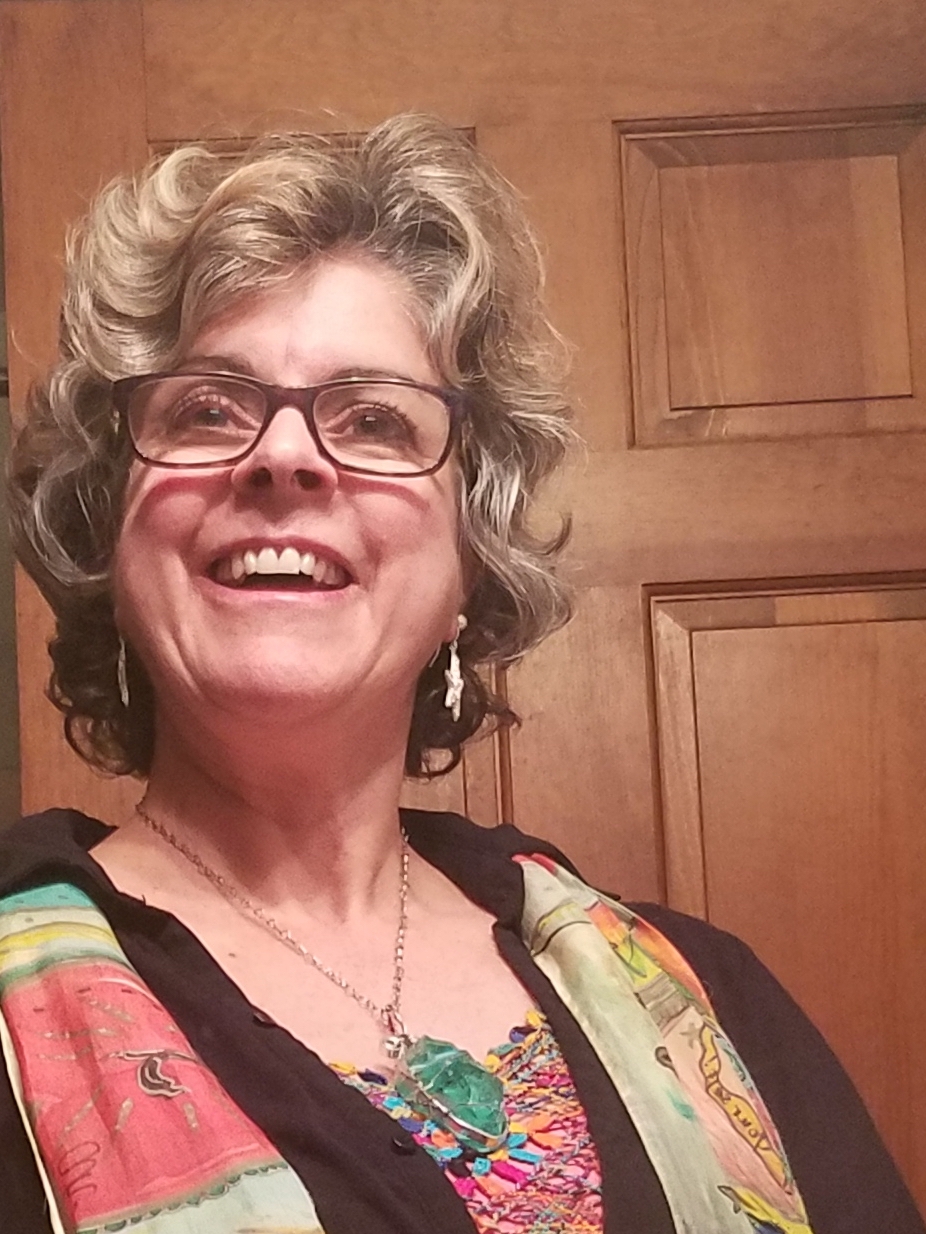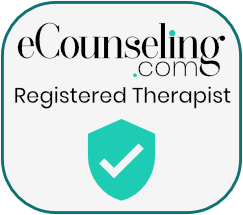With the onset of technology, the field of Education is experiencing nothing short of a total metamorphosis, amplified by the great divide between “digital natives” (those who were born into a technological society) and "digital aliens" (those born after technology became mainstream).
Perhaps you have listened to Sir Ken Robinson on the changing paradigm in education. If not, click here: https/www.youtube.com/results?search_query=sir+ken+robinson+paradigm.
Although it may seem odd that computers are the impetus behind personalizing education, it appears that this is indeed a next generation trend. Please allow me to explain - with Skype in the Classroom and Internet accessibility, educators are able to connect students with classrooms across the globe, bringing cultural diversity into students' daily experience. Social media such as Facebook and Twitter keep digital natives aware of not only global news and events, but also the latest trends in technology development as well as family and friends' daily (even hourly) experiences. This seamless and immediate connection between individuals' lives has never before been available, making 'Generation X and Z' empowered beyond that which was available to previous generations.
It appears our children are more self-aware and better informed about politics and world issues. Articles are being written about how the upcoming 'Generation Z' young adults who are just now entering the workforce, are not interested in pursuing careers that do not offer them a meaningful connection to 'self.' In other words, the 'Me Generation" has given rise to children who are very interested in connecting their purpose and personal interests to initiatives and companies whose mission aligns with their core values. Where previous generations dreamed of this potential and reluctantly acquiesced, subverting their core values in order to take jobs that paid the bills, our children are not.
So, what is the impact of being so well connected to one's local and global communities on today's learner? Consider the fact that news is obtained via cell phones on Patch, alerts broadcast "breaking news" keeping citizens informed of events as they happen. Students expect instantaneous gratification and traditional educational delivery is still structured as it was in the Industrial Revolution, read this, write this, answer this question. In more dynamic schools (typically charter and private schools) Internet broadcasts, social media, Skype and other electronic formats engage today's learners more effectively. But, change happens ever so slowly. Expectations for interactive and personalized learning is at an all time high. Students expect teachers to not only be facile with electronic sources; they thrive when approached in this manner. However, many educators today have only marginal technological abilities and those that do use these more up to date delivery methods are still in the minority. There is still a disconnect in keeping up with these fast paced changes presented by technology in the field of Education. The current gap between how students learn best and governmental policies such as No Child Left Behind which structures concepts like the Common Core Standards is already outdated when compared to the fact that a global Education organization like The International Society for Technology in Education (ISTE) has already published global standards.(http://www.iste.org/standards)
This raises the question about why we want educational standards in the first place. Is this because every school, country and child values standardized assessments? If so, why do we claim to be research-based, when Harvard University clearly published research claiming an inverse correlation between students who excel on standardized assessments and how these same students succeed after college graduation or in our working world? It is this disparity that lead educators to shift away from standards toward competency-based assessments. Certainly this is a step in the right direction.
So, as educators adjust thinking from what we were trained to do in a pre-technological revolution pedagogy to a more dynamic and up to date methodology, the ground is fertile for global education reform which originates with a learner-centered focus. Perhaps this is why Sugata Mitra's TED talk on Building a School in the Cloud won the $2 million award: https://www.ted.com/talks/sugata_mitra_build_a_school_in_the_cloud?language=en and charter schools have begun to flourish.
So, as we continue to see large scale education reform move toward anywhere/anytime education and as the digital aliens retire from teaching or adapt by learning technology, the landscape of how and where kids learn is, for the first time since 1892 (when the first public school curriculum was written) up for grabs.
This leads me to ask the question: What If?
What if schools were to become Community Learning Centers where area Entrepreneurs, residents, community volunteers and organizations cycled in and out as needed to educate our kids, act as Coaches and Advisors to hands-on projects?
What if each kid was assessed as an individual, not as a score against his/her peers? So that beginning in pre-school teachers were trained to learn everything they could about who each individual child is, what they like and don’t like, what their natural interests and talents are and how each child thinks? This type of truly personalized learning would keep track of each child’s growth/progress in learning as s/he build each skill upon the next according to real world projects run by community members, parents, organizations, etc.
Etienne Wenger suggested that we have an open slate to redesign education if we consider rebuilding current education as a type of Community of Practice, or COPs, as they are called. I am thinking the idea of taking all of our children back into the real community does just that.
So how would this work in practice? I do not have all the details worked out. That is where a ‘brain trust’ of like-minded professionals and parents would have to create the first planning group. However, as a rough sketch – for the sake of discussion, let’s just take a stab at this. Here a few ideas to prompt this discussion:
- An old school is transformed into a Community Learning Center, funded by local and federal taxes.
- Community members or business folks, parents and volunteers who have a skill, craft, hobby, or a workplace learning opportunity would register as a Community Educator. This can be any community member with a skill, craft, business internship etc.
- Community Educators are paid by their employers to “volunteer” 1 day a week at the local Community Center. (This model worked for years at Tom’s of Main in Kennebunkport, Maine)
- Volunteers are also accepted as Community Educators and are not paid. These folks also have a craft/skill/talent to teach the kids.
- Each Learning Experience is project-based and is scheduled by an Area Administrator and a Town Education Planning Agent.
- A formally trained Team of Teachers are responsible for aligning competencies to all town projects and for planning out all Individualized Learning Plans.
- All projects have a Culminating Activity and must meet specifically pre-determined educational achievement goals as set forth by the Team of Teachers.
- All projects are designed for the betterment of the community to promote wellbeing among all community members – for example, a community kitchen is created and run by area school children, supervised by a community member or volunteer.
- Internships for kids are offered at all local businesses and each of these businesses receive a stipend for each child they host. The budget for this is arranged in advance and managed by each town. (These internships are what we are now calling ELO’s or extended learning opportunities.)
- Laws would have to be passed to cover liability in case a child were to get injured or need transportation to a medical facility etc.
These are just a few ideas on how a model designed to educate future generations might work. If you have some ideas, please let me know…




